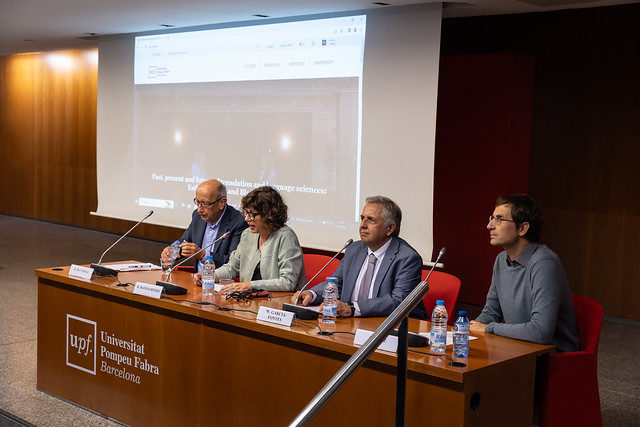Richard Blundell analyses the keys to reducing inequalities at the 2023-2024 academic year’s Economics Lecture
Richard Blundell analyses the keys to reducing inequalities at the 2023-2024 academic year’s Economics Lecture
Richard Blundell analyses the keys to reducing inequalities at the 2023-2024 academic year’s Economics Lecture
On 18 October, the professor of Political Economy at University College London and senior research fellow at the Institute for Fiscal Studies delivered the lecture “Inequality, Redistribution and the Labour Market: Reflections from the Deaton Review of Inequality” on the Ciutadella Campus, marking the start of the 2023-2024 academic year for the Faculty of Economics and Business at UPF.
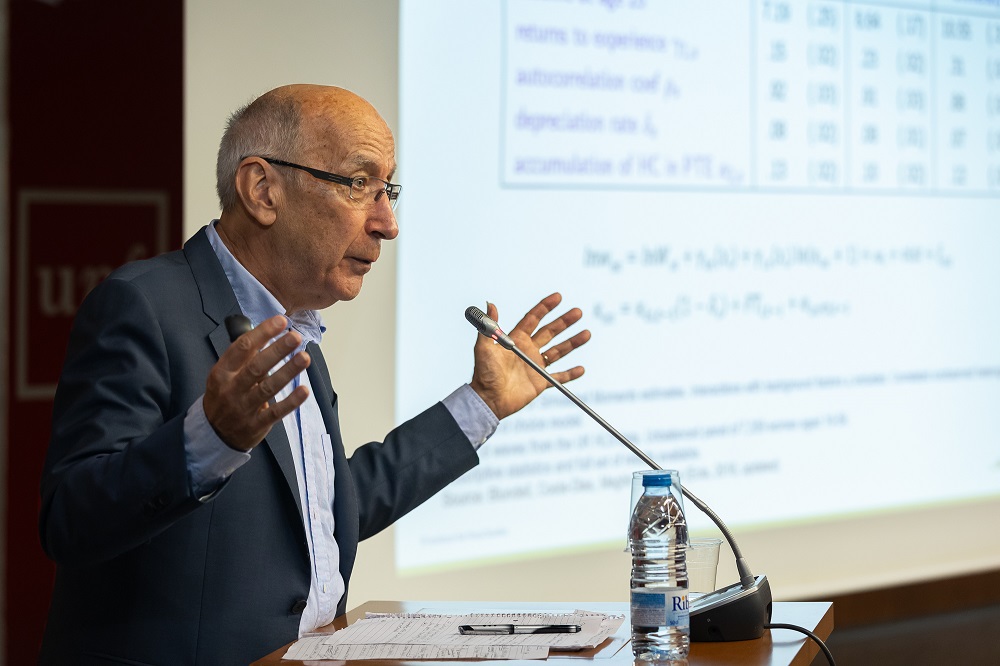
Richard Blundell, professor of Political Economy at University College London and senior research fellow at the Institute for Fiscal Studies (IFS), recently delivered the Economics Lecture for the 2023-2024 academic year under the title “Inequality, Redistribution and the Labour Market: Reflections from the Deaton Review of Inequality”. During his lecture, Professor Blundell presented a number of aspects and conclusions from this independent study in which he took part, the aim of which is to examine a broad range of inequalities within the main economies of Europe and the US.
The 32nd edition of the Economics Lecture, which marked the start of a new academic year for the University’s Faculty of Economics and Business, took place on 18 October, at 11 a.m., in the auditorium on the Ciutadella Campus. The event was presided by Helena Ramalhinho, vice-rector of Internationalisation at UPF, who was joined by Walter Garcia-Fontes, dean of the Faculty, and associate professor Albrecht Glitz. Other attendees included undergraduate and postgraduate students, teaching and research staff and other members of the university community.
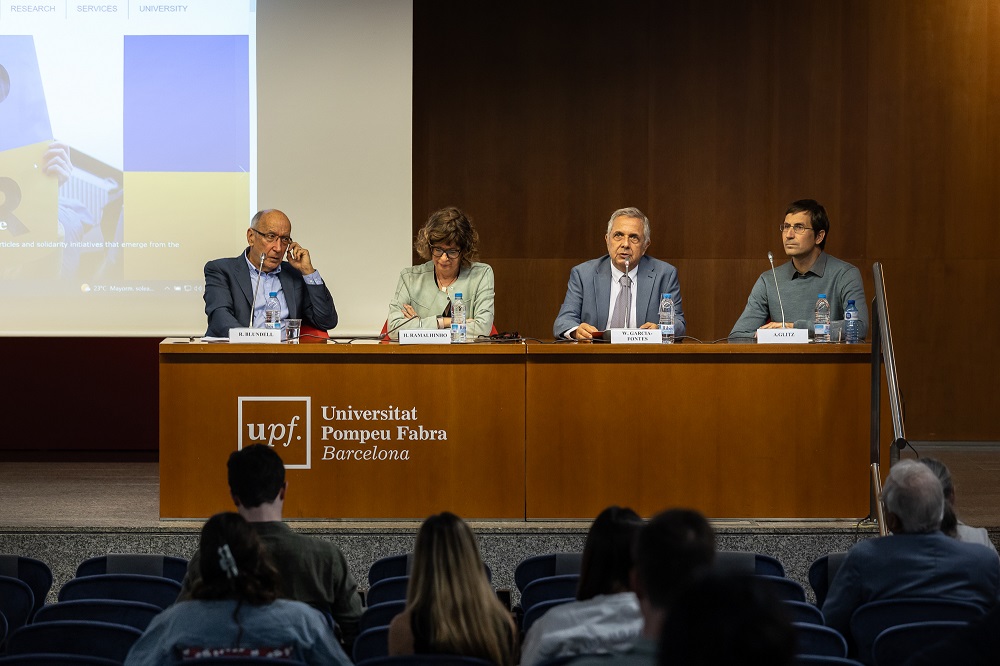
Following an opening address by Helena Ramalhinho, Walter Garcia-Fontes’ presentation highlighted the close links between the Faculty’s programmes (6 bachelor’s degrees altogether) and the Department and the fact that teaching and research go hand in hand: “That is what has given us our reputation and prestige within society.” The dean also issued a reminder of the high cut-off mark for the Faculty’s degree programmes (among the highest in the Catalan University System), programmes recognised within numerous economic sectors.
Lastly, Walter Garcia-Fontes explained that, following the renewal and creation of new bachelor’s degrees in 2010, the time has come, with the approval of the new Universities Act (LOSU), to once again rethink this selection of programmes: “We have given ourselves a period of two or three years in which to resign our bachelor’s degrees and explore other ways of doing things, as freely as possible.” And went on to add that: “We will gradually bring the students, teaching and research staff and management, administration and service staff into this process with a view to working together to renew our Faculty’s programmes.” As part of this approach, the Economics Lecture was followed by a meeting of the Faculty of Economics and Business’ fully revamped Advisory Council, “to take stock of the degree programmes taught by the Faculty and consider future prospects.”
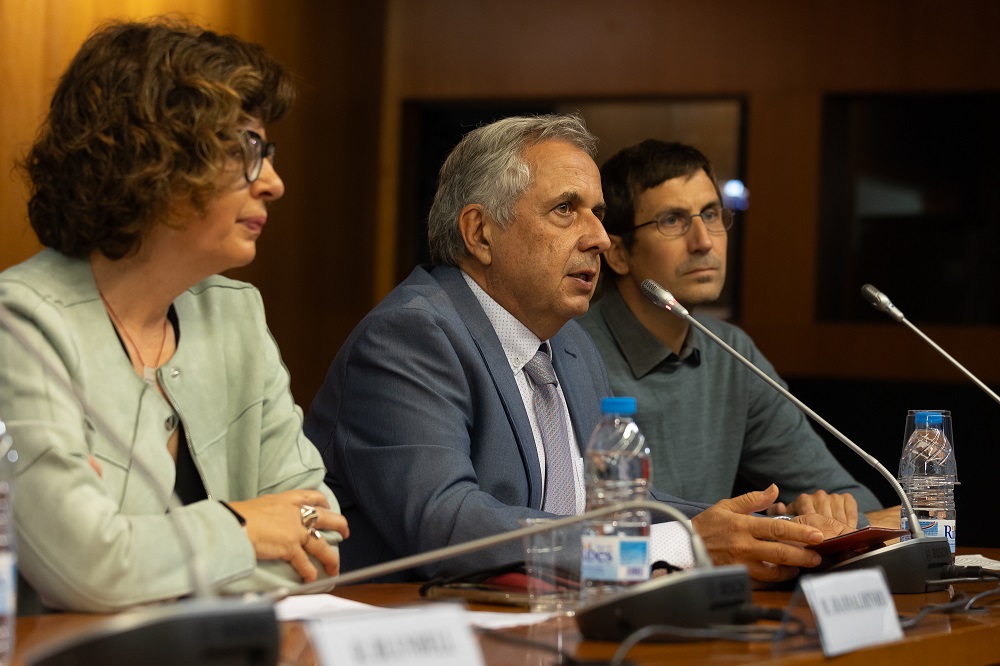
Richard Blundell, a lecture focused on inequalities in the 21st century
Richard Blundell, who was introduced by UPF professor Albrecht Glitz, based his lecture on the IFS-Deaton Review panel: Inequalities in the 21st Century, a five-year project headed by Angus Deaton (Princeton University), which, from a comparative viewpoint, analyses data from 17 European countries and the US. The study is being conducted by an interdisciplinary group of researchers in a bid to gather the best available evidence from all social sciences and answer key questions about inequality: Which inequalities matter most? How are the different types of inequality related? What is the best combination of policies for dealing with the adverse impact of inequalities?
“Employment alone is not enough to escape poverty and low earnings”
Based on the premise that inequalities in wealth, work, wages, productivity, consumption, education, health, family backgrounds and political involvement, as well as inequalities between groups (such as those related to ethnicity, race, age or location), are equally as important as earnings inequality, the speaker cast the spotlight on the long-term challenges of reducing inequality.
He emphasised that, despite improvements in the employment rate of women, increases in the minimum wage, improved education, greater female involvement in higher education and the labour force, the presence of productive companies in certain sectors and growing earnings, all of this is still not enough to revert the situation: “Employment alone is not enough to escape poverty and low earnings”, he reflected.
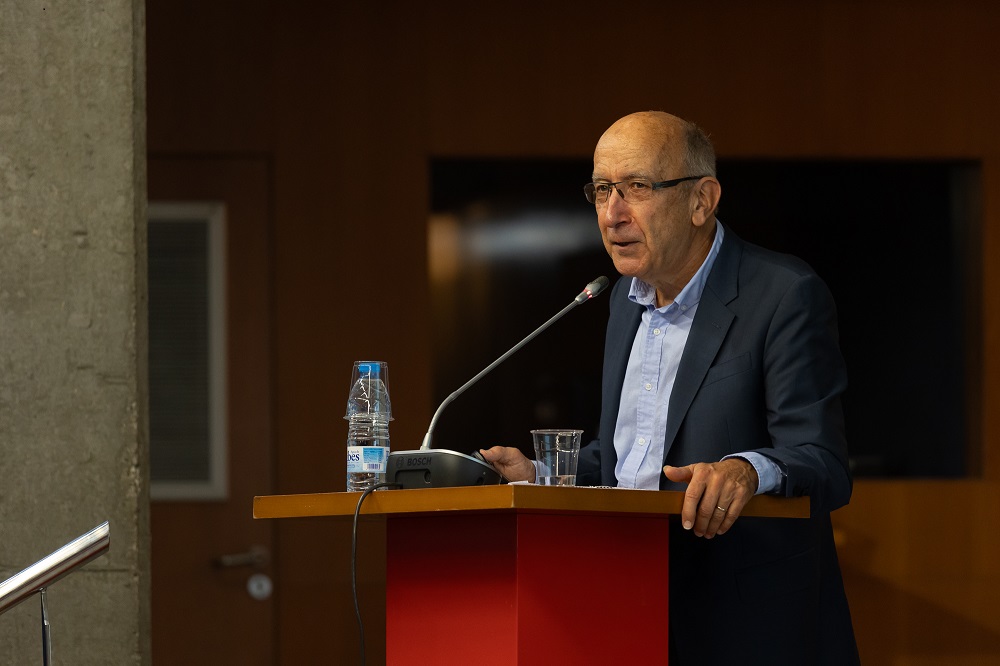
Wage progression and social skills to reduce inequalities
Blundell singled out several essential aspects which may help reduce these inequalities, one of the keys to which is wage progression over the working life, an issue closely connected with the role of education, human capital investments within the world of work and skills, as well as companies.
Particularly decisive is the role of social skills (such as teamwork, coordination, problem sensitivity, responsibility for outcomes and active listening), which, for lower-educated workers, represent a major avenue towards higher wages and enhanced wage progression. According to the professor, “workers with social skills are complementary to highly qualified workers and have access to a larger proportion of the surplus that currently exists.”
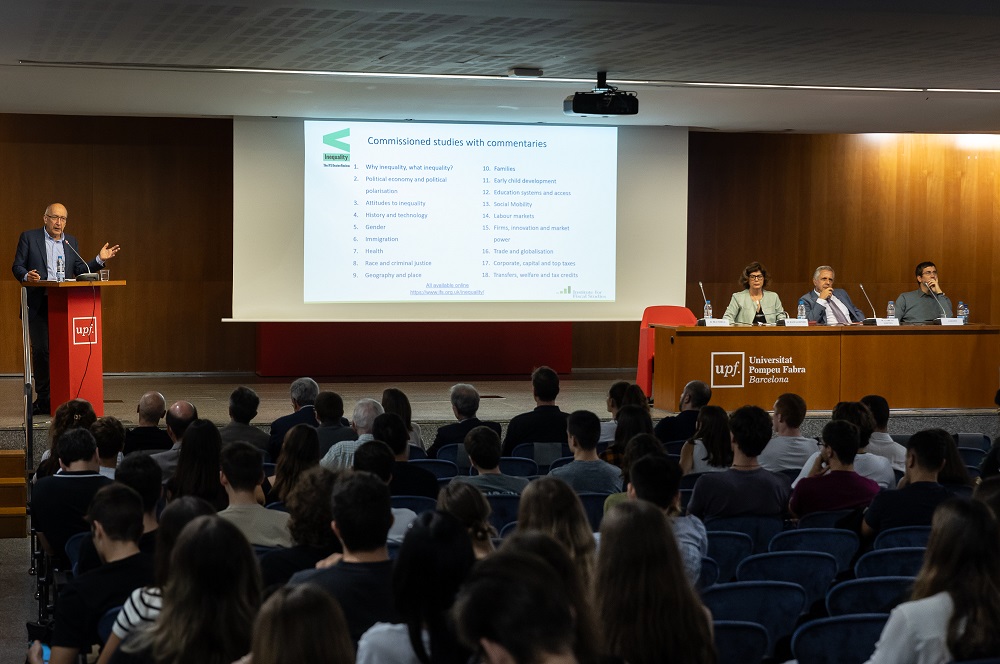
A long and prestigious academic career
Sir Richard Blundell (1952, Shoreham-by-Sea, Great Britain) currently holds the David Ricardo Chair of Political Economy at University College London, where he was appointed professor of Economics in 1984. In the Institute for Fiscal Studies (IFS), he is co-director and research fellow at the ESRC Centre for the Microeconomic Analysis of Public Policy (CPP), where he was both founding director and research director (1986–2016).
He has held visiting professor positions at UBC, MIT, Chicago, Northwestern, TSE and Berkeley, and his published papers in microeconometrics, consumer behaviour, savings, labour supply, taxation, public finance, innovation and inequality have appeared in the top academic journals.
He has participated in studies for tax reforms, such as the Mirrless Review, which brought together experts to identify the characteristics of a good tax system for any open developed economy in the 21st century. He is currently editor and panel member of the IFS-Deaton Review: Inequality in the 21st Century, as well as a member of organisations such as the American Economic Association, the American Academy of Arts and Science and the National Academy of Sciences.
Richard Blundell holds honorary doctorates from eight European universities and, within the British honour system, was knighted in the 2014 New Year Honours list for his services to Economics and Social Sciences. He was also awarded the Commander of the Most Excellent Order of the British Empire (CBE) in 2006.
His distinctions include the 1995 Yrjö Jahnsson Prize; the 2000 Frisch Prize; the 2008 Jean-Jacques Laffont Prize; the 2015 BBVA Foundation Frontiers of Knowledge Prize in Economics; the 2016 Erwin Plein Nemmers Prize in Economics; and the 2020 Jacob Mincer Prize in Labour Economics. Within the field of Economics, he has chaired several associations and societies and served as co-editor for a number of highly prestigious scientific journals.

